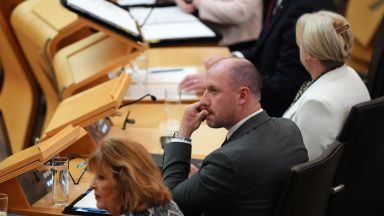A damning report has found the lack of data on the deaths of children in care “heartbreaking” amid a “promise” by the Scottish Government to improve the lives of young people in care.
The study, which is being conducted by The Promise Scotland Oversight Board, found the pledge made in 2020 was “more of a statement of commitment than a true implementation plan”.
Fifty-nine young people died between 2019 and the first nine months of 2021, the report found, comprising 17 children in care, seven in continuing care and 35 in throughcare and aftercare.
There was an increase in the number of deaths reported in 2019 and 2020, and a decrease in 2021, however the cause behind the change is unknown, as the report states “this is data on a group of people for whom no additional information is collected”.
The report continued: “The avoidable death of a child or young person for whom Scotland has had responsibility is an unmitigated tragedy.
“The fact that the data lacks any information on the lives and experiences of care-experienced young adults compounds what is already a heart-breaking position.
“Failure to understand not only makes it hard to monitor, but also fails to provide the chance to learn and make sure it stops.”
The “promise” has been described as a “ten-year transformational change programme”, however the report states that more needs to be done if it is to be fulfilled by the target date of 2030.
Other areas of concern highlighted in the report include a lack of mental health provision for young people, with lengthy waiting lists having a “profound impact” on youngsters.
The Promise Scotland Oversight Board also said it was “concerned that there is a lack of planning to end cross border placements”, in which children are put into care in other parts of the country “too far from their home”.
There is also concern that siblings continue to be separated despite efforts to keep brothers and sisters together when in care.
And there was a complaint that the data available was “insufficient for understanding children’s lives, and incomplete in providing information for us to properly do our job”.
The report said: “The way that data is predominantly used by the ‘care system’ has evolved to meet the needs of the ‘system’, rather than being founded on what matters to children, families and care-experienced adults.
“Too often it seems that Scotland only measures things which are easily quantifiable rather than things that matter, such as a child’s personal development as they grow older.”
Fiona Duncan, chair of the oversight body set up to monitor efforts, said it was clear that “we need greater urgency across Scotland to deliver the change needed”.
She said: “The lives of too many babies, infants, children and young people in Scotland are still determined by their circumstances.
“In times of adversity, too many face a system that does not love and does not care as it should. By 2030, at the latest, that must change.”
But she added: “It is concerning that more than two years have already passed since the promise was made, and with less than eight years left to keep it, we need greater urgency across Scotland to deliver the change needed.”
While the report said change was not happening at the scale or pace needed, Ms Duncan stressed that “there is no one organisation that can be singled out and identified as getting it wrong”.
Instead she stated: “The inability to make sufficient progress is collective and exists right across Scotland.
“As the problem is collective, the solution must be collective too and we must take a long hard look at what has been achieved – and what has not – in the last two years and consider what more we can do, at pace and with a sense of urgency because lives depend on it.
“Before the next monitoring report is published next year, we need to see a real step change in the pace and scale of improvements being made.”
Deputy first minister John Swinney welcomed the report and the “continued focus and momentum to keep the promise”.
He said: “In March, we set out over 80 actions that the Scottish Government will take to Keep The Promise and deliver change by 2030.
“Alongside The Promise Scotland, the care community, local government and others, we continue to build on work that is already under way to improve the lives of children, young people and families in and around the edges of care as quickly as possible.”
Follow STV News on WhatsApp
Scan the QR code on your mobile device for all the latest news from around the country


 iStock
iStock

























